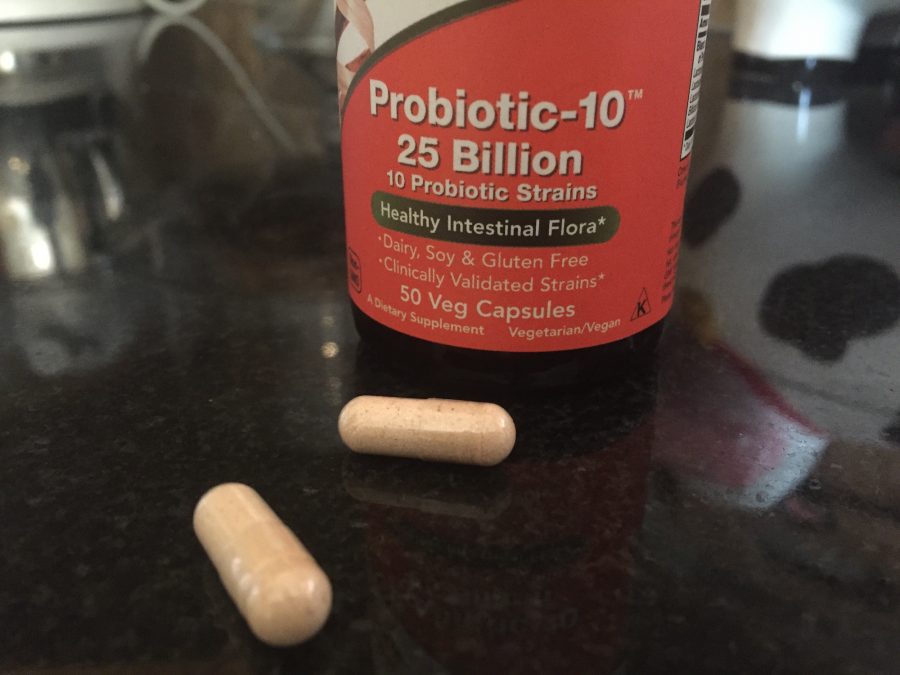The Many Benefits of Probiotics
Everyone has experienced the embarrassment of sitting in class and just after it becomes silent, your stomach starts up its own full-scale orchestra. Are you hungry? Did you eat something that upset your stomach? Do you have to use the bathroom?
These are all likely possibilities but if this is happening regularly, your stomach might be trying to tell you something and it is time to trust your gut.
If probiotics sound familiar to you, it is probably because they are found in most yogurts. Probiotics are bacteria; the good kind.
The National Center for Complementary and Integrative Health (NCCIH) defines probiotics as, “live microorganisms that are intended to have health benefits.” Your stomach is lined with trillions of good bacteria that help you digest your food. They play a key role in digestion and work to absorb nutrients and minerals, produce vitamins, and eradicate toxins.
There is a 3:1 ratio of good-to-bad bacteria, respectively, and it needs to stay that way for ideal health. When the good bacteria ratio dips, you experience stomach discomfort, gas, bloating, heartburn, constipation, and diarrhea. Crohn’s disease and Irritable Bowl Syndrome (IBS) can develop in more serious cases.
Probiotics repopulate the good bacteria in your body and help regulate digestive health. While probiotics are not a complete solution for larger issues like Crohn’s disease or IBS, they can alleviate symptoms caused by these problems. There are several different types of good bacteria so not all probiotics are the same. Certain strains of them are used to lessen symptoms of IBS, Crohn’s disease, etc.
Probiotics are often recommended to people who are taking antibiotics for a period of time, and a week after they are finished with them. Antibiotics kill all bacteria in the body and can cause diarrhea because of it. Probiotics repopulate the good bacteria that was killed off.
Your skin, immune system, and your urogenital health are also affected by a deficiency in good bacteria.
The good bacteria also allows the delicate intestinal system to stay in balance and it also does the same for the sensitive urogenital system. When off balance, however, the urogenital system can lead to infections like Urinary Tract Infections (UTI) and yeast infections.
A person who suffers from frequent UTI’s would benefit from probiotics. Good bacteria ward off bad bacteria from entering the urinary tract by populating its pathways.
Women who get recurrent yeast infections turn to yogurt, which is packed with probiotics. Yogurt and other foods that contain Lactobacillus, a good type of bacteria, increase the good bacteria and normalize the vaginal imbalance.
Yogurt, sour pickles, sauerkraut, miso, kimchi, kefir, and kombucha are some foods that are rich in probiotics. Implementing these foods into your diet can boost your immune system, help digestion, increase energy, and give you healthier skin.
Recent studies have found that it can even help with weight loss.
Probiotics can also be taken as a supplement. Women’s Health Magazine recommends taking supplements with Lactobacillus and Bifidobacterium because they are strained well enough for a clear path to the intestines. The recommended dosage for supplements is based on how many live organisms they contain and what type they are.
The NCCIH suggests that only people with irregular digestive health take probiotics. People with healthy digestive systems tend to see some side effects – some mild, like gas, or severe.
There is still a lot of information to uncover about probiotics and they continue to be studied regularly. The NCCIH recommends consulting your general physician before taking probiotic supplements.
Your donation supports independent, student-run journalism at Pace University. Support the Pace Chronicle to help cover publishing costs.

